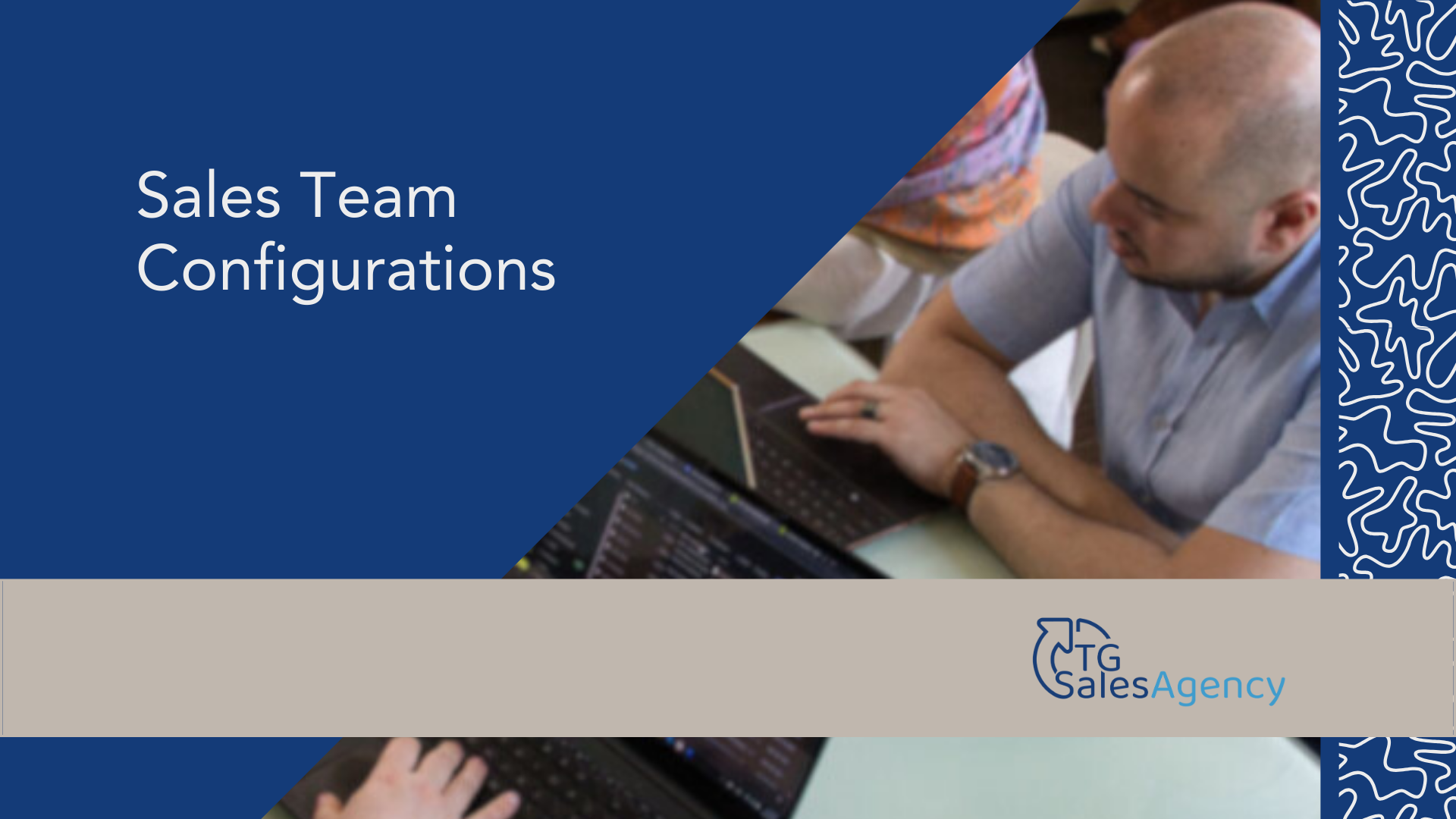
How To Know When To Outsource Your Sales
Founders and sales managers – how do you know when to outsource your sales?
Now, we all know that founders should never lose sight of their company’s sales, but we understand. You have other things on your plate. While you may not pull away from sales completely, having a support system will make things a lot better. The same goes for VPs of Sales, Business Development, and other sales leaders.
When your sales aren’t what they should be, adding resources can ensure your company is reaching its sales potential. These resources might help with specific sales tasks like lead generation and appointment setting or handle the entire sales funnel.
The question is when it’s time to build on your sales strategy, should you hire a full-time employee or outsource? Well, the answer depends on the state of your business. So, let’s jump into the signs that you need to increase your selling capacity and what to consider as you decide on the next steps.
Indicators That You Should Outsource Your Sales
Below are the major signs that you need to add another resource to your sales team. In some cases, outsourcing may be the best solution, but in others, it may not. We’ll discuss both possible scenarios.
You Don’t Have Time

Not having time is one of the worst reasons for missing sales. You’re likely busy with current clients, finance, and other pressing issues. However, if your sales don’t get the attention they need, you might eventually find yourself in a spot where your production comes to a screeching halt.
You should never put sales on the back burner for later. Today’s outreach creates tomorrow’s opportunities. If you have no sales activity today, can you guess what that means for tomorrow? Not much.
Not having time is one of the most obvious reasons for getting help with your sales. However, does having support get you off the hook?
It doesn’t.
First, no one has the knowledge you have about your company. Whoever you hire will need your insight, training, and oversight.
If you have time to hire, train and manage an internal person, that could be your best bet. Finding the right person comes with its own set of challenges, more so today in our disruptive employment market. Furthermore, if you don’t have the time to coach a full-time salesperson, consistently review their results, etc., having one may not be the best option for you. Assuming that they likely will NOT be able to run sales as you do, you may unintentionally set them up for failure by not giving them the proper foundation.
Looking further into the future, if you don’t continuously develop your sales employee, even an experienced rep can become demotivated.
What to consider: If time is your issue, should you outsource your sales?
You’ll find the answer through a realistic assessment of how much time you have to hire and manage a salesperson.
Chaos Is Part of Your Daily Life

There’s chaos in every business, but if you can’t sell effectively because you spend most of your time cleaning up messes, you need help.
You may be able to hire an internal employee that comes in, calms the chaos, and allows you to focus on selling better. Hiring a consultant to set up a suitable process framework and do initial cleanup can also do the trick.
Either way, outsourcing your sales or hiring an employee to address chaos is risky. You’re adding a third party to a mess, and unless they genuinely have buy-in from you and the rest of your team, they won’t be effective in cleaning it up.
What to consider: If chaos affects your sales, is outsourcing to a contracted sales professional a good solution?
Yes, but only if you’re open to change and only if they can implement solutions to address the chaos within the sales process. If the disorder doesn’t stem from the sales cycle, diagnose your root problem first and resolve it before deciding to get more help.
Out-of-Control Pipeline

Are you usually on the one end of two extremes: you’re either slammed by new leads or scraping the bottom of the barrel?
This erratic behavior comes from going hard on your sales sometimes, and at other times, not doing enough.
As mentioned before, founders and sales executives can fall into the bad habit of not selling. This habit is a major cause of having an unpredictable pipeline. In this case, the main underlying issue we’ll focus on is prioritization.
You might believe you’re doing the right thing by prioritizing non-sales tasks like billing, planning, admin work, or even taking off extra time to handle personal issues.
You can find a middle ground for your hot and cold pipeline by delegating as many non-sales tasks as possible. Talk to your family, your team, and those in your circle. Explain why you need their help and why it’s better for everyone in the end.
What to consider: Delegate to build and work your pipeline effectively. If you still need help after doing this, consider seeking additional help. If you need a turnkey solution, get help from a sales as a service company.
Inconsistent Conversion Rates

Inconsistent results are most obvious when you review your conversion rates. They are a great indicator that you might need help and should possibly outsource your sales. In this instance, your sales cycles and seasonal patterns are unpredictable. It’s even worse if you haven’t kept any records of your sales numbers at all.
If this is you, don’t fret. Other founders like you achieved getting their companies to the next level; they just had to get organized.
When conversion rates are all over the place, it’s easy to understand why by comparing historical sales activity and buyer behavior over some time. However, it might take you time to pinpoint the highs and lows if you don’t have data.
There could be several reasons you haven’t assessed and stabilized your conversion rates. We’re covering the most common ones throughout this article, like lack of time or structure. Once you find the culprit for neglecting your conversion rates, you’ll know if you can fix it on your own. If not, call in an expert.
What to consider: Figure out why your conversion rates are not consistent. If you’re unsure how to dig into this, get support from a sales expert or analyst.
Your decision to outsource this task will depend on the complexity of your business, needed process changes, and time to execute.
Learning

Not having historical sales data for your company means your company is brand new, or you haven’t kept records until now.
As mentioned in our last example, you may need to set up new systems to be able to keep records and learn what’s appropriate for your company. You may also be in the learning phase because you have new ideas for your business and need to experiment with them to see how they’ll work. While in this phase, you may want advice from someone who’s worked in a similar situation.
While you’re on this discovery path, guidance can come from a consultant or an experienced employee. In either case, you and the other party need to be extremely flexible during this learning period. Your initial ideas may need tweaking, and things will likely evolve as you figure out what works.
What to consider: What have you tried so far? What has been successful, and what hasn’t?
Who can support you in a way that gives you room to navigate this learning stage while still allowing you to meet the other needs of your business?
Budget Concerns

Budget is a concern whether you outsource your sales or hire an employee. In either case, it’s an investment. At this phase, you can consider the following when deciding whether a W2 employee or a contractor is right for you:
- Do you need someone full-time? If so, hiring an employee or contracting a company are the best options. It’s a bad idea to hire an individual as a 1099 contractor if you need them full-time. New laws prevent misclassifying employees as contractors since the gig economy’s blown up over the past few years. Not paying attention to this can get you in trouble with the IRS and the Department of Labor.
- Hiring full-time employees means more responsibility and financial liability for you as an employer.
- Outsourcing to an agency can be a less risky, less costly option. But, if you expect to invest a lot in training and want someone to grow with the company, it may not be the best fit.
What to consider: Carefully look at your finances, potential costs and return on investment, long and short-term plans, and mitigate your risk.
Need more information?
After considering all we’ve discussed, you should better understand your needs and options. If you need additional insight into what it’s like working with an outsourced sales partner, set up a time for a free consultation with us.
If we’re the best choice for you or not, we’ll be happy to accompany you at this pivotal point of your growth.




